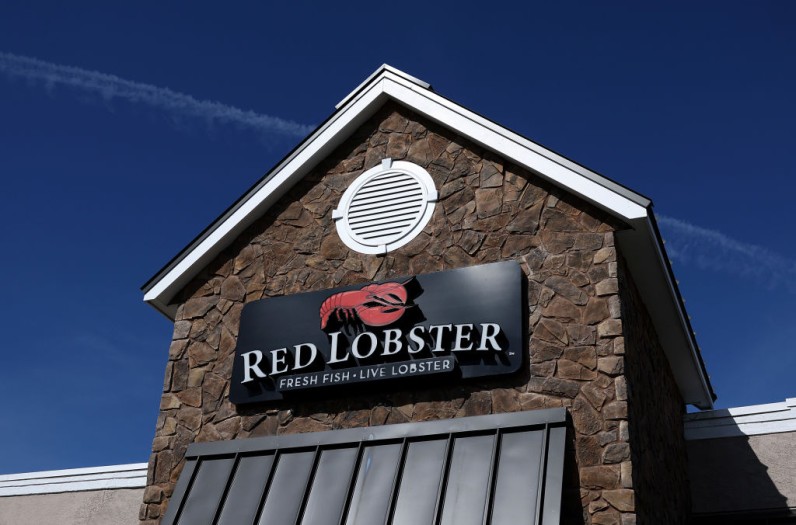Red Lobster, the iconic seafood chain, is at a critical financial crossroads as it begins its search for a buyer in a bid to avoid a potential bankruptcy filing.
According to sources cited by CNBC, the company, known for its iconic cheddar bay biscuits and all-you-can-eat shrimp, is struggling with significant debt, long-term contracts, and costly leases across its vast network of 700 locations.

Is Red Lobster Nearing Bankruptcy?
A previous Bloomberg report tells us that Red Lobster has been considering filing for Chapter 11 bankruptcy to restructure its debt and eliminate costly leases.
However, the company has also actively pursued potential buyers in recent months, with at least one firm expressing interest in acquiring the chain. Despite these efforts, a definitive deal has yet to materialize, leaving the company's future uncertain.
The magnitude of Red Lobster's financial challenges is demonstrated by its recent performance. The company reported $11 million in losses in the fiscal third quarter, followed by $12.5 million in losses the following quarter.
Reports tell us that these losses were partly attributed to the company's impractical decision to expand its "endless shrimp" promotion from a weekly to a daily offering, which ultimately strained its bottom line.
Red Lobster's leadership turnover has exacerbated its woes. Jonathan Tibus, a seasoned restructuring expert, was recently appointed CEO following a string of executive departures.
Tibus has decades of experience navigating distressed restaurant chains through turbulent times. However, he faces the daunting task of navigating Red Lobster's current financial crisis.
READ NEXT: Walgreens to Open a New Pharmacy Offering Cell and Gene Therapies to Patients With Chronic Diseases Like Cancer
A Declining Dining Industry
Red Lobster's problems are not unique to the company; they reflect broader issues confronting the casual dining industry. According to CNBC, the sector has struggled for years due to stiff competition from fast-casual chains and shifting consumer preferences.
The pandemic exacerbated these issues, further reducing margins and dampening sales.
Thai Union Group, the company's majority owner, has indicated its intention to divest its stake in Red Lobster following sustained financial losses.
Red Lobster, Thai Union Group, Fortress Investment Group, and King & Spalding are currently discussing potential restructuring options and lease renegotiations.







Join the Conversation